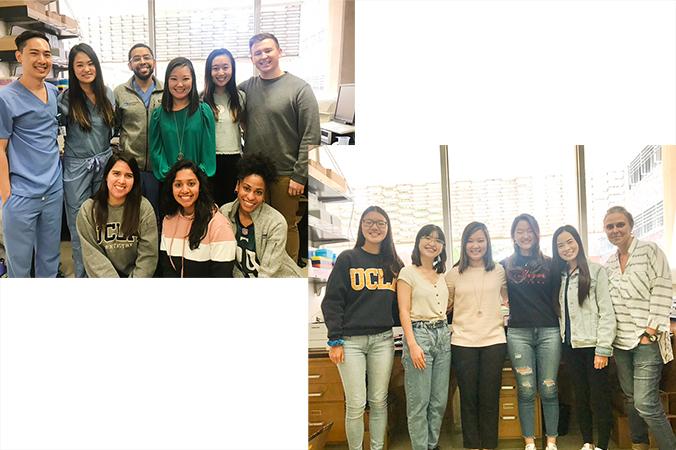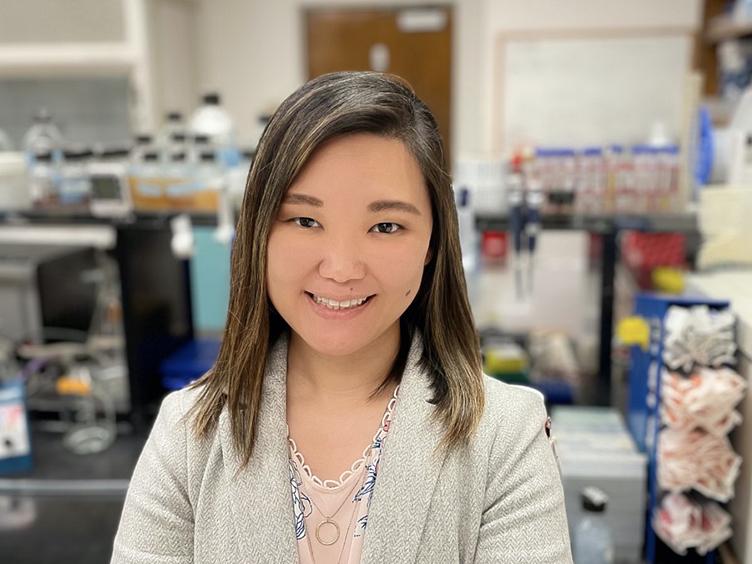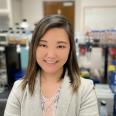Tran Laboratory


Principal Investigator:
Nini Tran, D.D.S., Ph.D.About
The Tran laboratory focuses on diagnostics and therapeutics of early childhood caries related to microbiome and host susceptibility. The primary goal is to examining the role of Streptococcus mutans and the oral microbial communities in children’s susceptibility to early childhood caries. The Tran laboratory also conduct integrated clinical and translational research to test innovations and products in dental and oral health.
Current Projects and Grants
NIH 1K08DE027718-01A1 PI: Nini Chaichanasakul Tran 09/15/2018 – 08/31/2024
Title: Exploring knowledge gaps in childhood caries through integrated biological and clinical research
The project goal is to investigate a discordant, preschool child population whose caries status contradicts what is expected based on their S. mutans level in comparison to the accordance counterpart. Integrating innovative study design and novel tools, the research plan aims to 1) characterize S. mutans strain individuality and its ecological relationship within different microbial communities; 2) explore salivary host biomarkers related to childhood caries; 3) validate S. mutans-associated microbial virulence signatures and host salivary biomarkers for precise and comprehensive caries assessment.
Faculty Research Grant, Council on Research, UCLA 07/1/2019 – 06/30/2020
Title: Integrative analysis of the oral microbiome of American Indian infants and the impact of a childhood obesity-prevention home visiting program on early childhood caries.
The project goal is to assess the Family Spirit Nurture program, an early childhood obesity prevention randomized controlled trial, that delivers education-based intervention focusing on infant feeding practice and reduction of sugar-sweetened beverage consumption, as an early childhood caries preventive strategy by characterizing the oral microbiome and metabolome of participating Navajo infants and to evaluate its impact on early childhood caries outcomes.
Publications
- Lin, J., Dinis, M., Tseng, C., Agnello, M., He, X., Silva, D., Tran, N. C. Comparison of the GumChucks flossing system to traditional string floss. Scientific Reports. 2020 (in press)
- Aleti G, Baker JL, Tang X, Alvarez R, Dinis M, Tran NC, Melnik AV, Zhong C, Ernst M, Dorrestein PC, Edlund A. Identification of the bacterial biosynthetic gene clusters of the oral microbiome illuminates the unexplored social language of bacteria durin
- Agnello M., Marques J., Cen L., Mittermuller B., Huang A., Tran N.C., Shi W., He X., Schroth R.J. Microbiome Associated with Severe Caries in Canadian First Nations Children. Journal of Dental Research. 2017 Nov; 96 (12):1378-1385. doi: 10.1177/0022034
- Agnello M., Cen L., Tran N.C., Shi W., McLean J.S., He X. Arginine Improves pH Homeostasis via Metabolism and Microbiome Modulation. Journal of Dental Research. 2017 Jul; 96(8):924-930. doi: 10.1177/0022034517707512. Epub 2017 May 9. PMID: 28486080; PM
Lab Members
Collaborators
List of collaborators within and outside of UCLA:
Intramural collaborators:
- Dr. David Wong, School of Dentistry
- Dr. Renate Lux, School of Dentistry
- Dr. Bridget Callaghan, Psychology
- Dr. Chi-Hong Tseng, Department of Medicine Statistics
Extramural collaborators:
- Dr. Anna Edlund, J. Craig Venter Institute
- Dr. Catherine Sutcliffe and Dr. Laura Hammit, Johns Hopkins Bloomberg School of Public Health
List of Lab Members:
- Márcia Dinis, Assisting Research Scientist
- UCLA undergraduate students
- Dental students
Opportunities
Undergraduate students who are interested in becoming research volunteers are encouraged to submit a cover letter and resume via email. Eligible students will be invited for an interview. If accepted, students must apply to become a volunteer throught the Clinical UCLA Health Sciences Volunteer Program at the UCLA David Geffen School of Medicine.
Residents and graduate students interested in research opportunities please contact Dr. Tran.
Contact Us
Phone: (310) 825-8356
ntran.lab.ucla@gmail.com

